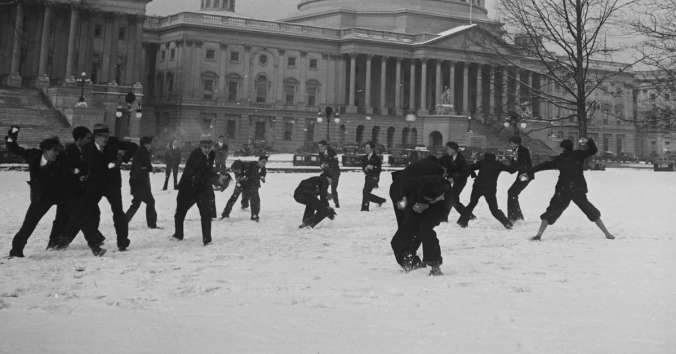Sometimes we all resist facts. I saw a cyclist slip on the icy road. When I asked if it went well, she was on her feet in an instant and denied everything: “I did not fall!” It is human to deny facts. They can hurt and be disturbing.
What are we resisting? The usual answer is that fact-resistant individuals or groups resist facts about the world around us, such as statistics on violent crime, on vaccine side effects, on climate change or on the spread of disease. It then becomes natural to offer resistance to fact resistance by demanding more rigour in the field of knowledge. People should learn to turn more rigorously to the world they live in! The problem is that fact-resistant attitudes do just that. They are almost bewitched by the world and by the causes of what are perceived as outrageous problems in it. And now we too are bewitched by fact resistance and speculate about the causes of this outrageous problem.
Of course, we believe that our opposition is justified. But who does not think so? Legitimate resistance is met by legitimate resistance, and soon the conflict escalates around its double spiral of legitimacy. The possibility of resolving it is blocked by the conflict itself, because all parties are equally legitimate opponents of each other. Everyone hears their own inner voices warning them from acknowledging their mistakes, from acknowledging their uncertainty, from acknowledging their human resistance to reality, as when we fall off the bike and wish it had never happened. The opposing side would immediately seize the opportunity! Soon, our mistake is a scandal on social media. So we do as the person who slipped on the icy road, we deny everything without thinking: “I was not wrong, I had my own facts!” We ignore the fact that life thereby becomes a lie, because our inner voices warn us from acknowledging our uncertainty. We have the right to be recognized, our voices insist, at least as an alternative to the “established view.”
Conflicts give us no time for reflection. Yet, there is really nothing stopping us from sitting down, in the midst of conflict, and resolving it within ourselves. When we give ourselves time to think for ourselves, we are freer to acknowledge our uncertainty and examine our spirals of thought. Of course, this philosophical self-examination does not resolve the conflict between legitimate opponents which escalates around us as increasingly impenetrable and real. It only resolves the conflict within ourselves. But perhaps our thoughtful philosophical voice still gives a hint of how, just by allowing us to soar in uncertainty, we already see the emptiness of the conflict and are free from it?
If we more often dared to soar in uncertainty, if it became more permissible to say “I do not know,” if we listened more attentively to thoughtful voices instead of silencing them with loud knowledge claims, then perhaps fact resistance also decreases. Perhaps fact resistance is not least resistance to an inner fact. To a single inner fact. What fact? Our insecurity as human beings, which we do not permit ourselves. But if you allow yourself to slip on the icy road, then you do not have to deny that you did!
A more thoughtful way of being human should be possible. We shape the societies that shape us.

Written by…
Pär Segerdahl, Associate Professor at the Centre for Research Ethics & Bioethics and editor of the Ethics Blog.
We care about communication



Leave a Reply